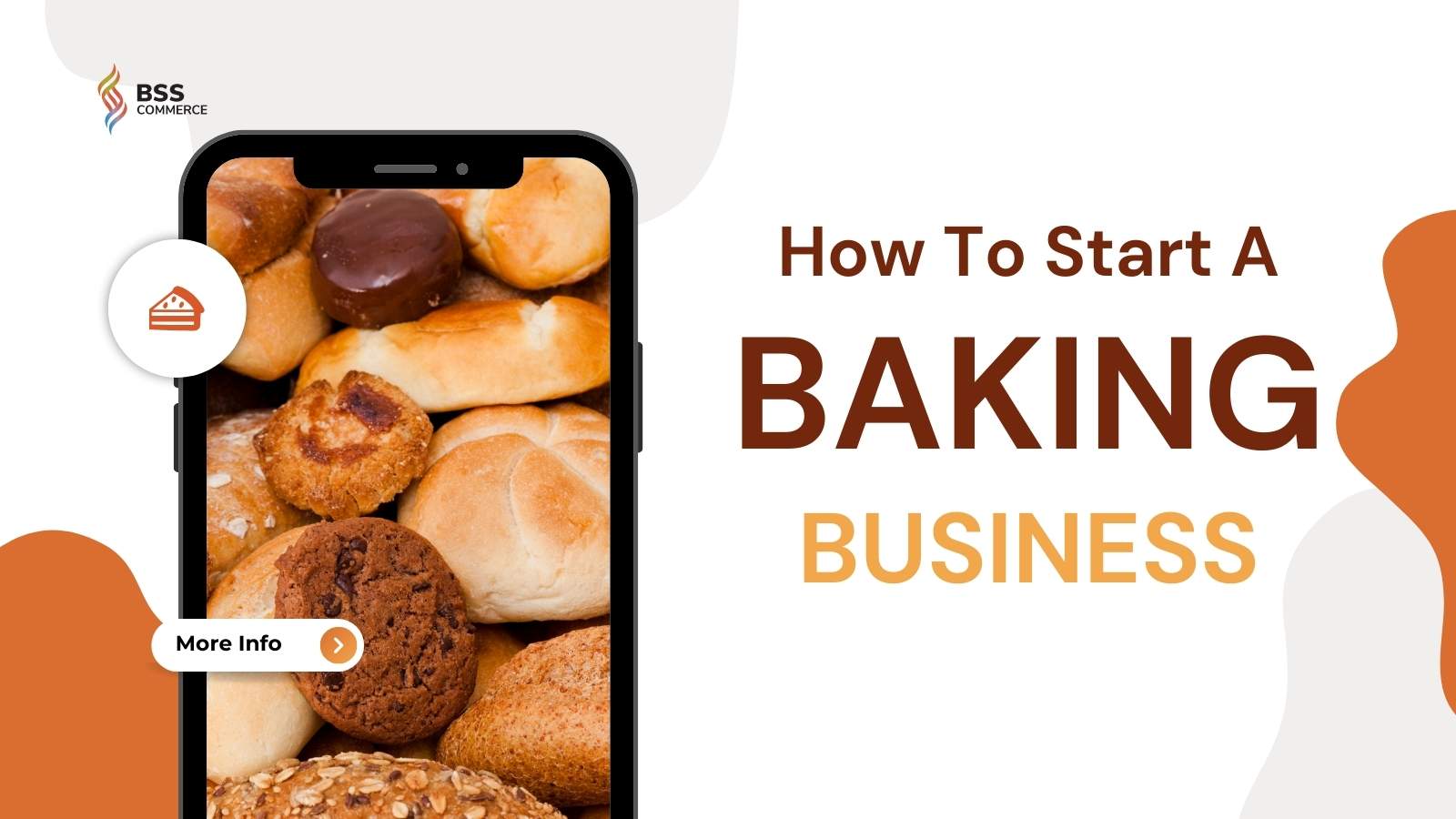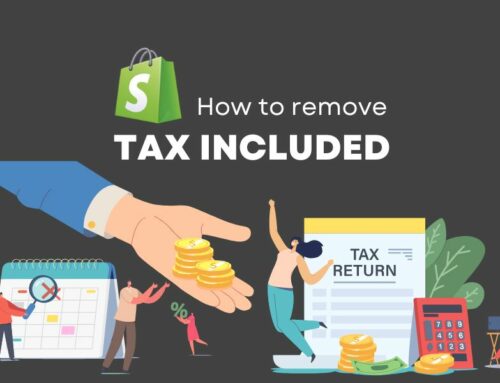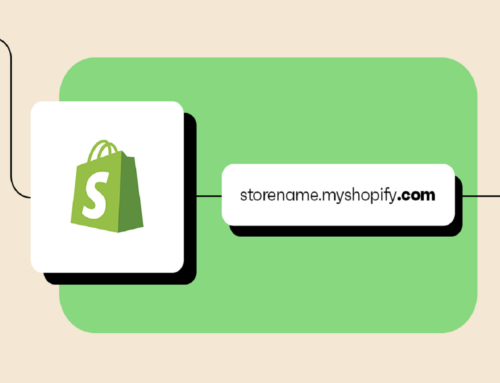Would you like to open a bakery, or maybe even start your very own baking business? Always dreamed of making money with your muffins, cash with your crumpets, and pounds with your pies? To the passionate baker, opening up a bakery or starting your very own baking business can be a rewarding and exciting venture. But just how does one get started with a baking business? Of course, no recipe for starting a successful business exists, but there is definitely a way to start off right. Continue reading below to get advice and inspiration on how to start a baking business.
Contents
- 1 How to Start a Baking Business in 5 Steps
- 2 How Much Does It Cost to Start a Baking Business
- 3 Tips to Promote Your Baking Business
- 4 Shopify – The Ideal Platform For Your Baking Business
- 5 Bottom Up
How to Start a Baking Business in 5 Steps
Research and Choose Your Market

Market research is crucial to be done before any business commences. By following this procedure, you will have a better understanding of your probable customers and competitors, thus, a clearer direction on how to start a baking business from home and where you would want to go regarding your business. You can use the internet to explore other companies’ products or services who are into the same business as yours, talk with people in the industry, visit similar companies, and find out whatever you can about consumer preference.
Use it after the research to decide what kind of business and product to build. There are a few different types of baking businesses:
- Bakery café: A bakery café offers a location in which the food or drink is to be consumed in that area. Concerns regarding this form of establishment is it would require seeking a potential area/region, engaging staff, equipment as well as chairs and decorations; plus offer numerous options of selection. For example, the bakery café may provide cakes, pastry and bread but at the same time provide other easy to make dishes like sandwiches, soups among many.
- Counter service: This is a stripped-back version of the bakery café. A counter service bakery will require less staff likely as menus are usually smaller, more specialized and served on a take away basis. As with a bakery café, creating an inviting ambiance is crucial as you will want to tempt customers in from the street outside.
- Commercial bakery: If you want to sell directly to businesses rather than members of the public, starting a commercial bakery could be for you. A commercial baker will win contracts with shops, restaurants, cafés and catering companies, using wholesale deals to bring in a regular and more consistent form of income. There is also less need to be showy, as you can operate out of a commercial kitchen without having to worry about attracting passing customers inside, and you will not need front-of-house staff.
Create a Business Plan and Budget

A business plan and budget are essential for any new business learning how to start a small baking business. They will indicate how much money is needed at each stage of the journey in order to meet the goals and objectives you are trying to achieve. You will invariably require a business plan if you decide to apply for a loan. The next task you will need to perform is that of preparing a budget. Be sure to include all one-off and continuing costs. A number of the key costs which should be considered for baking firms are:
- Premises: You can start at home or rent/buy a location like a market stall, shop, or commercial kitchen.
- Equipment and furniture: You will need essentials like fridges, mixers, ovens, trays, and also tables and chairs for customers.
- Renovation: Invest in an attractive storefront and inviting interior to attract customers if you open a bakery or café.
- Ingredients/Supplies: Estimating ingredient costs is essential; start with a rough budget for better bookkeeping.
- Bills: Factor in costs for electricity, water, gas, internet, security, and insurance.
- Qualifications: No formal training is required, but food hygiene qualifications can be beneficial. Check with local authorities for suitable courses.
Register Your Baking Business

One of the main aspects involved in the registration of a business is deciding on its business structure. You can take the most straightforward approach by simply registering as a sole trader, but there are also other options including partnership and limited companies. In addition to the decisions mentioned above that any person would need to consider when opening up a new business, you might also need to get specific licenses and learn about particular rules which control food-related businesses.
Register With Local Authorities
If your business is involved in the sale, cooking, storage, handling, preparation or distribution of food it is mandatory to register with your local authority. Make sure to do this at least 1 month ahead of your opening. It is important to bear in mind that this registration is free and cannot be turned down by authorities.
Food Safety and Hygiene Inspections
Food hygiene inspections can be sprung upon you at any time after you have registered with local authorities. This therefore means that you must always be maintaining high standards of hygiene in your preparation areas and procedures, as these are the things that will be examined during an inspection. If you perform badly during these inspections, you can be banned from using certain equipment or processes, which can be enormously detrimental to your business.
Any bans can be lifted if future inspections witness clear positive progress, but it is best to never fall short in the first place. The best way to be prepared for these visits is to gain food hygiene training and develop a good understanding of food safety rules in your regions.
>> You may need: 450+ Creative Cake Shop Name Ideas To Inspire You
Other Key Rules and Regulations for Baking Businesses
Other key rules that may relate to your business include the following:
- Music licence: This is required in case one wants to play live or recorded music to an audience in a public place at their place of business. The licence costs vary depending on the applicant, with applications taking place through the PPL PRS website.
- Food labelling: Product labels must include an ingredients list if they are made up of more than one ingredient. If your product includes any of the 14 key allergens, these have to be listed clearly in a different style, font or background color.
- Food Safety Management System FSMS: Most food preparing businesses must have a written FSMS that describes how workers will control safety hazards and ensure food is safe to eat.
Source Ingredients and Equipment

Find and identify reputable suppliers for superior ingredients and equipment to outfit your bakery. Nurture relationships with local vendors, or seek out options online. Acquire the equipment needed for preparation, such as mixers, ovens, and baking equipment, to satisfy customer demand.
You will need basic equipment to start a baking business to ensure that you can produce high-quality baked goods efficiently. The equipment you need may depend on the scale and type of baking business you plan to operate.
Set Prices, Package, and Open Your Bakery
Determine the competitive and profitable pricing for your baked items, considering the ingredient costs, labor, and desired profit margins. Develop attractive, professional packaging that meets your brand and target market needs.
How Much Does It Cost to Start a Baking Business
The cost of opening a baking business will be determined by many factors, including the size and scope of the business, the location of the business, and the types of services that will be offered. Generally speaking, you can estimate to invest anywhere from $10,000 to $50,000 in opening a baking business.
Following is a breakdown of some of the typical start-up costs for a baking business:
- Business registration and licensing: $1,000-$5,000
- Insurance: $2,000-$5,000
- Bonding: $5,000-$10,000
- Commercial space: $500-$2,000 per month
- Kitchen equipment: $5,000-$25,000
- Ingredients and packaging: $2,000-$5,000
- Marketing and advertising: $1,000-$5,000
- Total start-up costs: $10,000-$50,000
Tips to Promote Your Baking Business

The most successful baking businesses are strong brands. To develop your brand, you will need to establish your visual identity (for example, learn to make a bakery logo using a logo maker or by drawing inspiration from these bakery logo ideas) as well as your brand message. From there, drum up attention around your brand by:
- Make a website: Make a website that showcases your ready-for-purchase confections and/or pointing traffic towards your physical bakery. You should create a website to give awareness about your bakery, even if you have orders taken strictly in-person; the ease with which someone looking for your store or service through the web like Google directs can increase due to your presence there. Alternatively, you could plan how to start a baking business with an eCommerce website (like Shopify) and use it for selling your bakery products, or you might select an eCommerce business model without a physical facility.
- Promoting your business on social media: Social media could be a great avenue to showcase your business. Be it on Instagram, Facebook, or TikTok, social media will let you reach out to more audiences. Create content showcasing your baked goods, take them behind the scenes at your bakery, and most importantly, your business, in such a way that it is remembered. You would reach both locals and tourists on social media.
- Using professional photography: Invest in high-quality product photography to showcase your baked goods in an appealing and appetizing way. Use professional lighting, props, and styling to create visually enticing images for your website, social media, and other marketing materials.
- Collaborating with local businesses: Partner with local coffee shops, cafes or event planners to provide your baked goods for their customers or events (you could even learn the steps of starting a party planning business that goes hand-in-hand with your baking business). Offer samples, collaborate on promotions or create custom treats that complement their offerings.
- Participate in pop-up events: Set up a stall at food festivals or community events and present your baked goods to more people. Give away samples, along with business cards and flyers with your business information.
- Offer special orders and packages: Make attractive packages and customize for any occasion such as birthdays, weddings, and corporate events. Advertise on your website, social media, and referrals.
>> Read more: How To Create A Website To Sell Products: 6 Easy Steps
Shopify – The Ideal Platform For Your Baking Business

Having been introduced to the step-by-step guide on how to start a baking business, the time is now ripe for you to create a website for your bakery business. Shopify may be just the best among all options for bringing yourself into the digital world. Shopify is a leading e-commerce platform in the world, which makes selling anywhere easy by using their self-hosting software; it deals with all the retail features, right from website designing and product management to finances and shipping.
But why this e-commerce platform? With Shopify, you can start a business from home and grow right through to being an international brand with physical storefronts – you would not be the first Shopify merchant to do so. It is a platform supporting individual business journeys, having one admin manage your entire business, optimize your store, sell on social media, or explore popular retail models like dropshipping.
Plans and Pricing
Shopify has three core plans: Basic, Shopify, and Advanced; and one premium plan named Shopify Plus. In each of these plans, you will know how much Shopify is per month. Prices range from $25 up to $399 a month for the three core plans, paid upfront in a year, which saves you 25% compared to the month-to-month payments. While Shopify does not have a free option, it does offer a short 3-month trial for just 1$.
The user will get a set of core selling features that work fine with a solo entrepreneur or small businesses with 3 standard Shopify versions. However, some businesses really prefer to use the premium version of this platform, and that would be Shopify Plus. The companies on Shopify Plus tend to be really large and well-known brands.

Store Builder
Shopify’s intuitive store builder offers more than 100 no-code mobile-friendly themes. Customize infinite product listings with the editor’s integrated AI assistant that will help you with product description writing and site content management. When your brand is ready for the next step, you can always upgrade your website with third-party apps or even a fully customized online storefront.
Selling Features
With Shopify, you can sell on your website, directly on social media and marketplaces, wholesale to other retailers, or in person using Shopify POS. Capture more sales by using abandoned cart recovery and effective targeted email campaigns. These are tools that get international selling done.
Apps Ecosystem
Shopify apps are designed for adding functionality to Shopify stores. There are 13,816 apps from a total of 8,724 app developers, the latest update being made on January 19th, 2025, by Store Leads, which is quite a significant proportion in itself in the Shopify ecosystem. Truthfully speaking, Shopify has grown to be one of the most prominent eCommerce players, partly because of the rich library of apps that exist within the Shopify app store.

Payment Processing
Every Shopify plan has a native payment provider able to accept all major payment methods right out-of-the-box. In addition, more than 100 third-party payment providers are supported. Shopify’s checkout is highly extensible and allows merchants to present customers with options that range from express checkout to in-store pickup, discount codes, and Shop Pay – the highest-converting checkout on the internet.
Bottom Up
Many turned themselves into entrepreneurs and earned a sure monthly income by initiating a baking business. Learning how to start a baking business online requires proper planning, management of money, aggressive, shrewd marketing, and development of skills at regular intervals. The above pointers will help in understanding and deciding how to start a baking business. Hence, taking all the above into consideration before initiating the baking business.
In case you find this blog useful, do not hesitate to access more eCommerce blogs on BSS Commerce. CONTACT NOW to let us know your problems, and we are ready to help whenever you need us.




